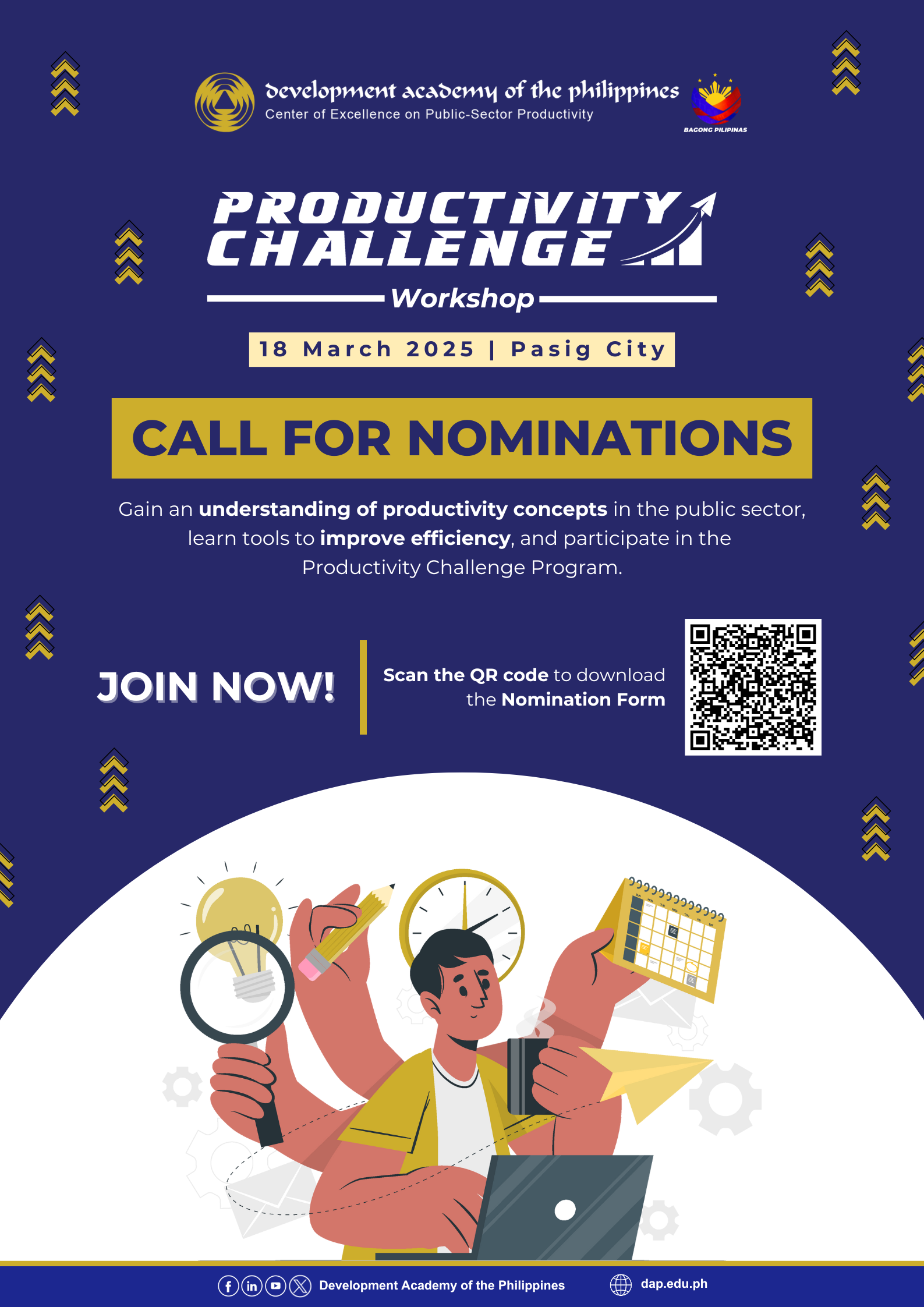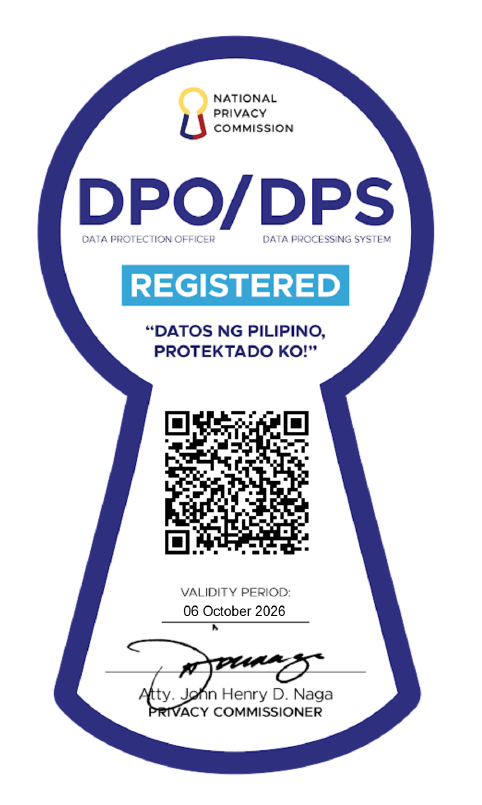The Development Academy of the Philippines (DAP), through its Productivity and Development Center, recently concluded the “Training of Trainers on Developing Future-ready Agribusiness Social Enterprises (SEs)” last 3-5 March 2021.

The three-day training program, sponsored by the DAP with the Asian Productivity Organization (APO), an intergovernmental organization that seeks to increase productivity in the Asia-Pacific region, was attended by potential agribusiness SE trainers from APO member countries. The course discussed topics on accessing finance, improving productivity, increasing post-harvest value, and expanding market linkages which play a vital role in achieving future-readiness of smallholder farmers and micro and small entrepreneurs.
DAP President and Chief Executive Officer Atty. Engelbert C. Caronan Jr. MNSA, in his welcome remarks, highlighted the importance of futuristic thinking and foresight in planning and developing enterprises, may it be a public or private entity.
In the keynote speech of Department of Agriculture (DA) – Agribusiness and Marketing Assistant Secretary Kristine Y. Evangelista, current initiatives, programs, and grants provided by the DA to boost Philippine agribusiness were presented. One of this is the “KADIWA ni Ani at Kita Program” that seeks to ensure that food commodities are made available and accessible in high consumer demand areas, particularly among the poor and low-income families, by harnessing private sector participation, enhancing capacity of farmers’ cooperatives and associations, and engaging community organizations’ participation in the food supply distribution system.
In the training proper, the participants acquired substantial knowledge on the concept and principles of future-ready social enterprises from Mr. Kevin Koranteng Cheeseman, an innovation consultant from Portugal. Mr. Cheeseman presented techniques, strategies, and alternative means to establish, scale-up, and fund social enterprises across the agriculture value chain.
Dr. Ramesh Mittal, Director of the National Institute of Agriculture Marketing from India, introduced future-ready technologies that can be employed in the agribusiness sector. He also elucidated the roles of the public and private sector in developing future-ready agribusiness SEs.
The high-level discussions were corroborated by the presentation on global trends and case studies on future-ready agribusiness SEs led by Mr. Etienne Dustin Salborn, UN Awardee, Founder and Director of Social Innovation Academy from Uganda.
Apart from the discussions, on the second day of the training, the participants had a chance to have a virtual tour of Urban Greens – Hydroponic Farm Systems, an innovative and future-ready model agribusiness. Mr. Ralph Becker, Founder, and CEO of the Urban Greens facilitated the virtual site visit. Urban Greens combines the latest technologies on hydroponic, Internet of Things, and blockchain technology with the best of traditional agriculture to produce stable, year-round harvests safe from the threat of typhoons and droughts. The farm grows 100% GMO-free, and artificial pesticides free with 90% less water used compared to conventional farming and a massively reduced CO2 footprint.
And to further bolster the organizational development of agribusiness SEs, the third day of the training included a discussion on the characteristics and competencies of effective trainers. This was presented by Ms. Ma. Theresa Agustin, Director of the Productivity and Quality Training Office of DAP. As a culminating activity, the participants presented their proposed model of an agribusiness SE that can be implemented in their respective countries.

The training of trainers is one of the pioneering virtual programs conducted under the Digital Multi-country programs of APO. This is in line with DAP’s goal to empower leaders, strengthen institutions, and build the nation through pioneering, value–adding, synergistic ideas, concepts, principles, techniques, and technologies addressing development problems of local, national, and international significance.
The DAP, as the National Productivity Organization, seeks to empower leaders, strengthen institutions, and build the nation through pioneering, value adding, synergistic ideas, concepts, principles, techniques, and technologies addressing development problems of local, national, and international significance. DAP – PDC offers capability building, technical assistance, and research related to productivity and quality improvement. For more information, visit www.dap.edu.ph, email pdc@dap.edu.ph or call 8632-2156/2137.
To get more details on the Training of Trainers on Developing Future-ready Agribusiness Social Enterprises email: pdro@dap.edu.ph
XXX




